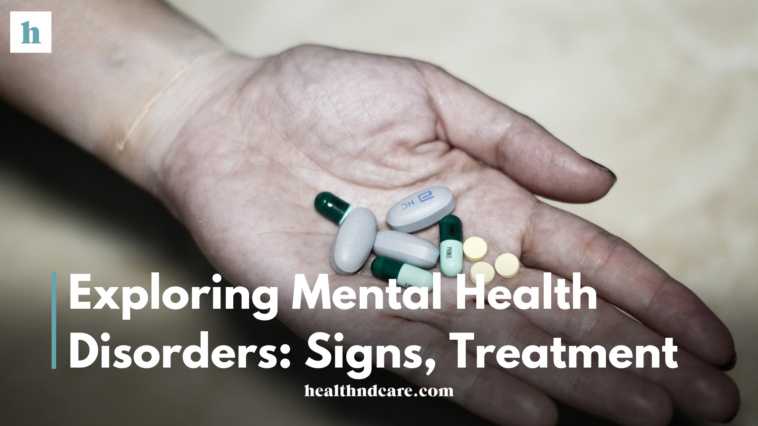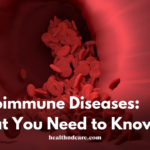Over 450 million of the world’s population suffers from mental health disorders. Although these numbers are staggering, they are grossly under-addressed. Knowing about the signs, means of treatment, and support available around can strengthen a person to find help for self or loved ones.
Understanding Mental Health Disorders
Mental health disorders are medical conditions characterized by impairment of an individual’s mental functioning or mood, thinking, and behavior. These disorders can result from a multitude of reasons including hereditary factors, brain structure and function, physiology and stress exposure, and environmental causes. Some of more common mental health disorders include:
- Depression
- Anxiety Disorders
- Bipolar Disorder
- Schizophrenia
- Obsessive-Compulsive Disorder (OCD)
Signs and Symptoms
Awareness of key signs and symptoms of the most prevalent mental health disorders falls within the realm of prevention. However, symptoms are not uniform and are prone to differentiation according to the person and the disorder, including but not limited to the following:

Emotional Symptoms
Persistent Sadness: The sensation of melancholy for longer than appropriate and desired duration of time.
Irritability: The development and growth of anger or frustration beyond baseline levels.
Anxiety: When every aspect of regular life invokes worry which is uncontrollable.
Mood Swings: Drastic transitions between emotional states.
Behavioral Symptoms
Social Withdrawal: Losing interest in friends, family, and even hobbies that were previously entertaining.
Changes in eating habits: Deviating too high or too low in weight and appetite from their baseline.
Substance Abuse: Experiencing pain which is untreatable lasts for periods of time and hence alcohol or drugs are used to forget pain.
Inability to Focus: It is a struggle to pay attention to a task or come to a decision in this area.
Physical Symptoms
Exhaustion: Feeling tired most of the time, regardless of the amount of sleep received.
Disruption in Sleeping Patterns: Either disturbance of sleep or too much sleep.
Loss of mobility: An area of the body causing pain that one is unable to identify a specific medical condition causing it.
Looking For Treatment
In case this is one of the signs that you or someone else that you know has, then help should be sought for. Treatment depends on the disorder if any that the patient suffers from, and its severity, and may include one or more of the following:
Psychotherapy
This includes psychotherapy or talk therapy, which is an important treatment category for many mental disorders. These include:
Cbt (Cognitive Behavioral Therapy): Changing negative thinking patterns and behaviors.
Dbt (Dialectical Behavior Therapy): Focuses on the management of already existing emotions and nurturing relationships.
Interpersonal therapy (IPT): Focuses on the relationships between people and the relationships between these people and the social environment.
Medication

Medications are said to treat the symptoms of mental disorder diseases regardless of the underlying cause. Some of these include:
Antidepressants: This medication is effective in treating depression and anxiety disorders.
Antipsychotics: Medications used to treat diseases such as schizophrenia and bipolar disorder.
Mood Stabilizers: This type of medication is utilized in the treatment of different mood phases in an individual suffering from bipolar disorder.
Lifestyle Changes
Some of the activities done basic life style changes can also act as non professional treatment options in management of the mental health aspect for instance:
Constant Training or Exercise: Getting physical improves a person’s mood which is very important in the release of endorphins or highs.
Healthy Diet: Foods containing nutrients can help in enhancing the brain’s function.

Mindfulness and Meditation: Activities that manage stress as well as help in controlling emotions.
Building a Support System
Support from family members or friends and mental health professionals is crucial if one has to recover. Below are ways to establish effective support:
Open Communication
Supporting open conversations around mental health can help combat stigma and assist those in need in seeking help.
Support Groups
Support groups can foster a feeling of belongingness. These groups provide opportunities for experiences and how to cope with them.
Professional Help
It may be helpful to encourage significant others to seek help from the appropriate professionals. Such specialists can assist with guidelines to suit an individual’s needs in the family.
Conclusion
Comprehending mental health disorders is the fundamental preliminary in trying to address these problems. Identifying the signs and symptoms, choosing how to approach treatment, and creating a culture that is sympathetic to the issues are fundamental aspects of mental health.
For the person or for someone known who has these problems, don’t forget that help is there and that pursuing help means a better and more fulfilling life.



